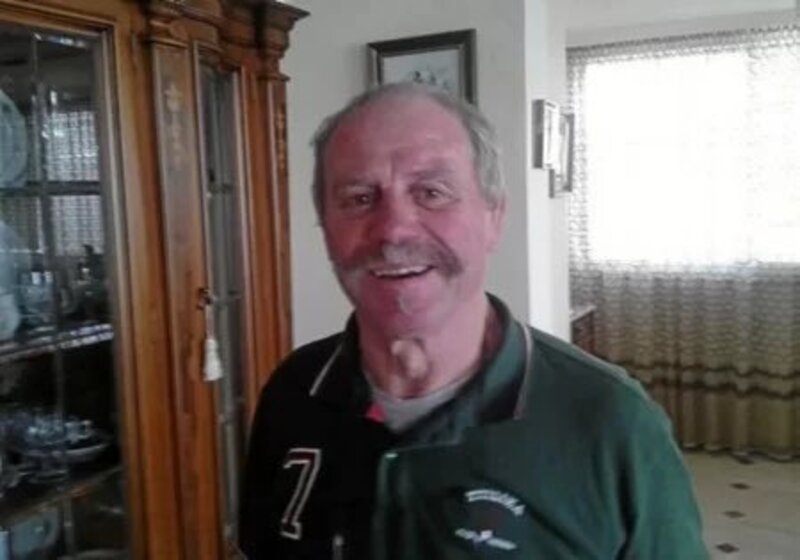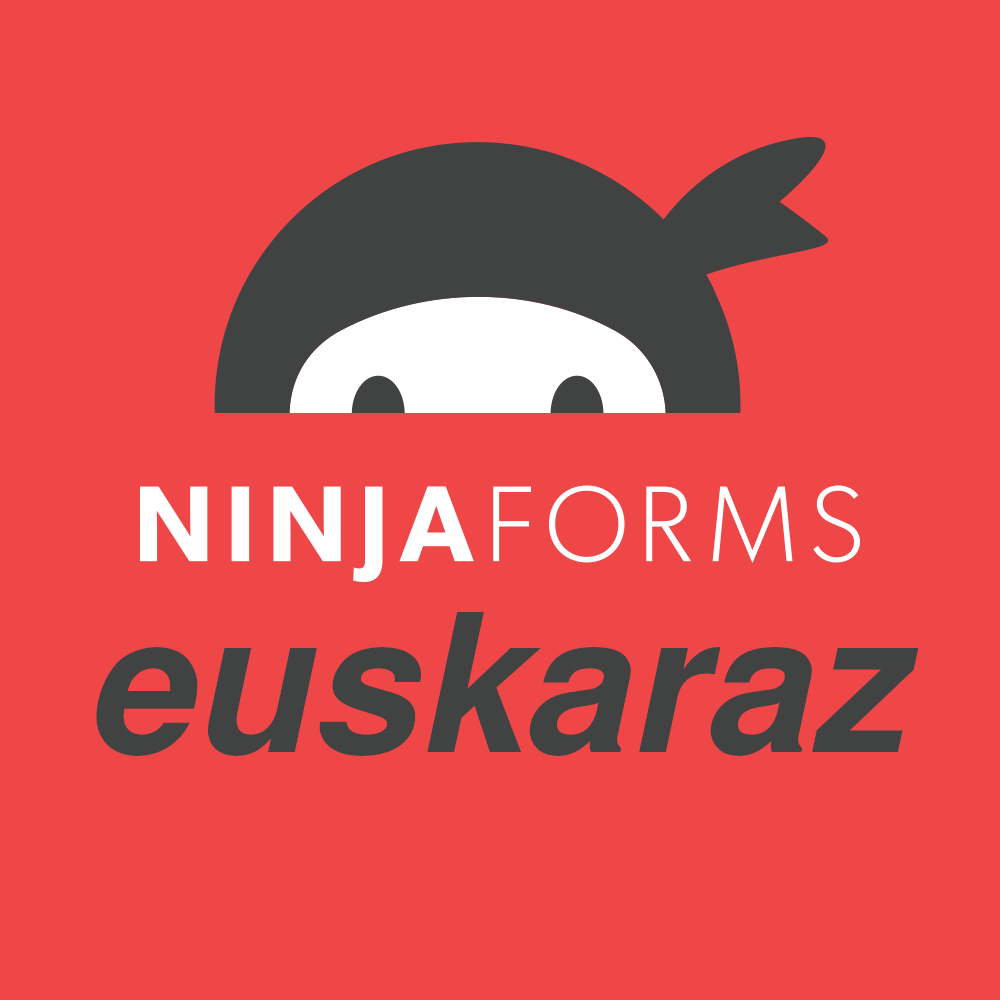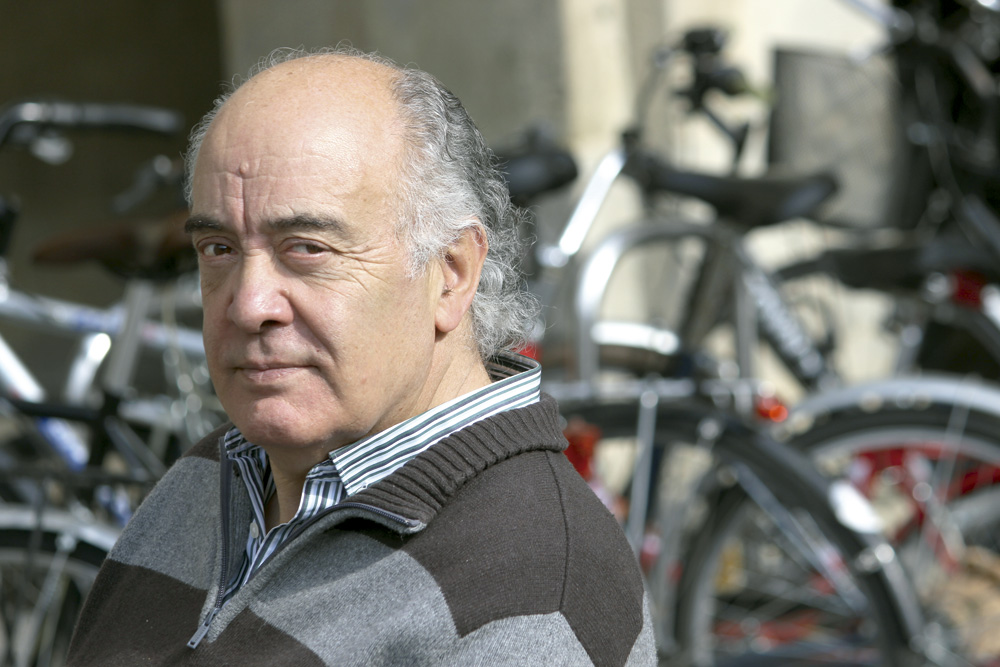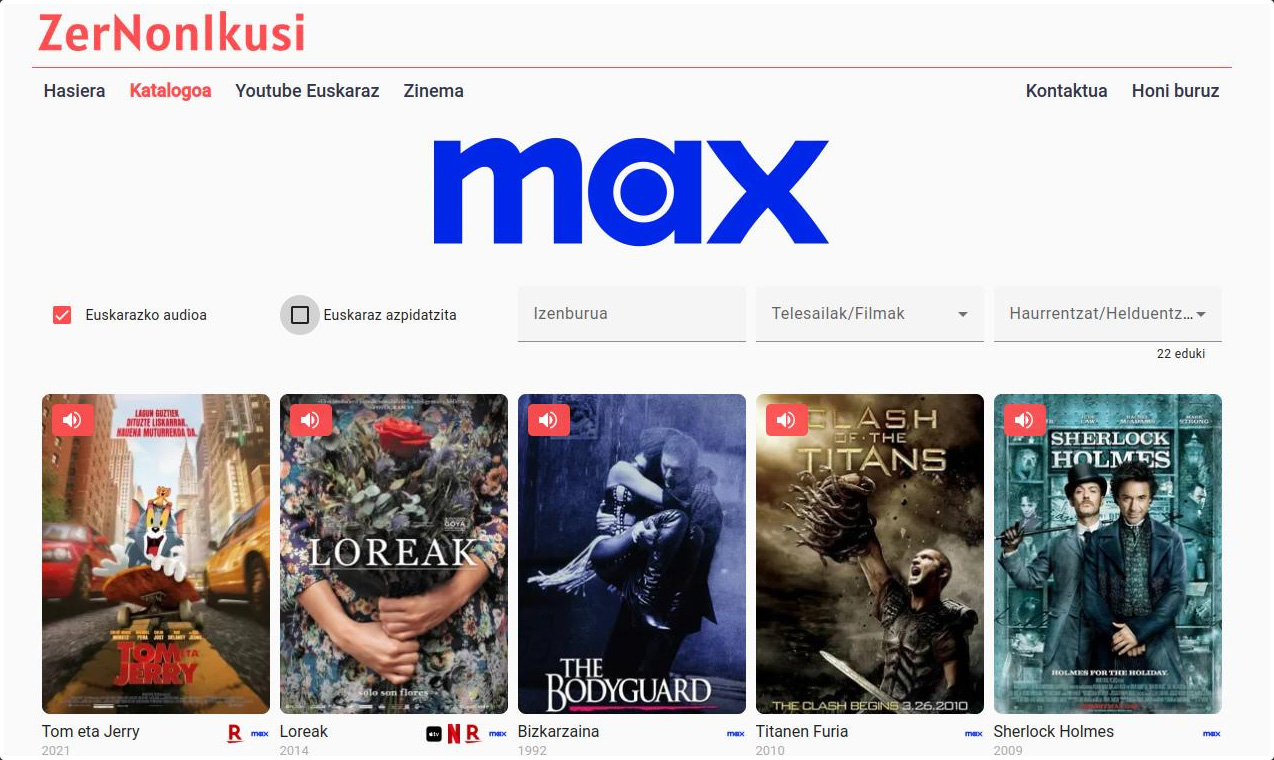"Through solidarity we want to bring Euskera closer to the families of children with special needs"
- The actress and singer Anabel Arraiza is Ane Pirata, from the Club Irrien Lagunak (T.E.R. ). Irrizales teach us that you can work together in the world of radio and people.
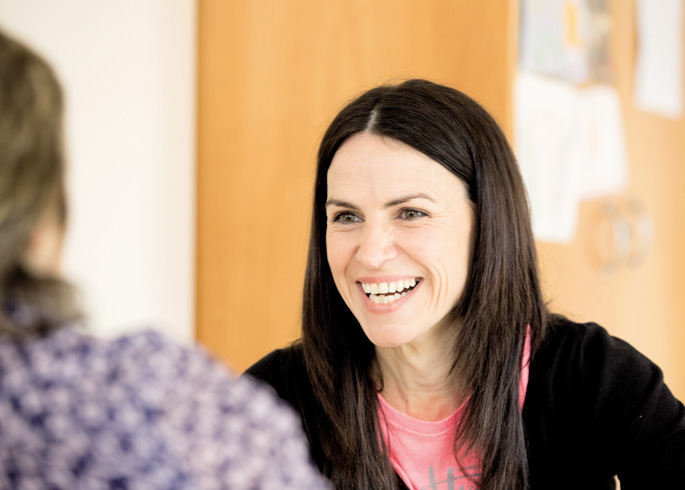
Gaztetxo zela aktore hasi zen zineman Mirentxu Purroyren Denboraren gibelean filmean. Telebistara egin zuen jauzi eta zortzi urtez Sara izan zen Goenkale telesailean. Ondoren Sorginen Laratza saioan aritu zen bi denboraldiz. Musikari gisa bi disko kaleratu zituen Triki ta ke taldearekin. Gaur egun bi antzezlanetan ari da eta Irrien Lagunak klubeko kidea da. Ane Pirata da jendaurreko emanaldietan eta, horrez gain, ekimenaren eta aldizkariaren kudeaketan dabil buru-belarri. Behar bereziak dituzten haurren familien Euskal Herri osoko 30 bat elkarterekin ari dira lanean irrizaleak, Bizipoza elkartasun sarea ehuntzen.
When did you first stand before the camera?
My mother was a professor at the ikastola San Fermin in Pamplona, and there I studied. I was doing high school when one day Mirentxu Purroy came to cast. We presented ourselves with those who had musical knowledge and chose me to participate in the film El paso del tiempo. Shortly afterwards came my fellow student Asier Andueza telling me that they were casting at ETB for a new series and there we left both. We did the test in the summer of 1994. I had just finished UBI and managed the Lakuntza pool bar. They called me while I was there and told me they had received me. So instead of going to college, I went to Goenkale. I started when I was 18 and worked for eight. Then I spent two years in the Bruges Valley. Those ten years of television were my youth. I did a thousand things.
Was it hard?
How was it going to be hard at 18? The worst thing was that we were starting at seven in the morning. My mother drove me to Irurtzun, where I picked up the Roncalesa and all the Leitzaran, up the port, down to San Sebastian. And then I would take a taxi every day to get to Miramon. All of a sudden, with a little confidence, as we made up, I asked my colleagues to please tell me what the Villavesa was to take to go to Miramón. Of course, they didn't understand me.
The job was a lot of fun. A kind of game for me. Many times I went without sleep or sleep, but learning scripts wasn't hard for me.
What happened to your character, Sara?
I don't know. It just disappeared. At the end of the season, I was married to Dr. Joseba and we had just adopted a child. At the beginning of the next season, Joseba and the boy were there, but there was no trace of Sara. Then Joseba had another couple… I killed myself, I didn’t kill myself, but Sara is where she is, who knows! Taking dust off somewhere in Arralde, perhaps!
What was Goenkale's biggest contribution?
Goenkale was a tremendous shock, because we joined the South American leaflets that were so fashionable at the time. That's why many people despised it, at least in public. Someone told me that he didn't see, but then he called me Sara.
On the other hand, Goenkale has given a lot of people work. In general, it can be said that it has been the Goenkale school. Good school. I, for example, don't come from theater school, but working day by day with so many good professionals teaches you a lot. Television also has a connection point. I love her. I've tried a little movies and I liked how they measure all things, but TV has a great charm.
It is also important for the Basque Country.
It was a close language. For example, Hika, which until then was barely heard on television, was often used in Goenkale, among others. Initially, despite the cold that seemed to some, Goenkale has been of great help to those who were learning Basque or did not live in very Basque environments.
In the first episodes I was the only Navarro, then Iñaki Perurena entered and then Matxin. I was told to use Lakuntza's language, but I find it very difficult to speak with someone other than Lakuntza. I find it easier to try to develop myself in the language of others. In fact, my coworker is from Ondarroa and I try whatsapp.
Why did you leave the series? Or did they abandon you?
While I was in Goenkale, I started collaborating in the Laratza de las Bruges, but there was a kind of struggle there. Goenkale was from the producer PAUSOKA and Sorginen Laratza was a product of ETB, and the heads of both collided with each other. I took it that way, at least. So when I was offered a contract at Laratza de Bruges, I had to choose between them. Still, I ended very well with the Goenkale and the whole team.
And in the Valley of the Witches?
I've got my spine stuck. After two years of work, I got pregnant. The boy was going to be born in August and I told them in June that he was willing to come back in September, but the then director told me that it was best to stay at home taking care of my daughter. The child would appreciate it. Yeah, it hurt me. In addition, he told me on the phone.
Was a man the director?
No. Female.
That burned me and I moved away from the television and the people I met there. I decided to educate my children. When the three children left, I got back to work. For example, I made some small collaborations every afternoon on the program.
You're also a musician.
Yes. I have learned accordion from a young age in Altsasu, Lakuntza and the Conservatory of Barañain. When I was 14 years old, I already started earning money at fifties or carnivals. Then I started to play in a group in weddings, baptisms and communions. He played the keyboard and sang.
Shortly afterwards, I was offered to join the Triki ta ke group. Imanol Goikoetxea was from Urdiain and he called me. We recorded two records, and I worked with them for three years, until I got pregnant. Part of the guilt was from the bass player of the group [laughs]. We have three children, the biggest one plays the piano, the second the accordion and the smallest one will start with the battery. We can arrange the group at home!
How did he get to the club Irrien Lagunak?
In 2011, I saw in Berria an announcement that said they needed actors to make some characters. I knew the project because we were partners, and part of the resume I sent a message saying: “I am Anabel Arraiza, an actress and musician, has worked in television and theatre, and mother of three children.” They called me right away, and I started to incarnate the character of Mari Kalanbre.
Don't your kids get jealous about having to share with your mother?
After the session, we have a habit of staying with the children and kissing them. The first time our children came to see me, they waited for everyone to pass. Then the little boy hugged me tightly and couldn't let me down, like saying, "This is mine."
What are you doing now in this initiative?
Oh, what I don't do! Now I'm in full swing with Ane Pirata and we do a family dance. We've put together my two facets: the actor and the singer. It's a very close job, very nice. You know children, families, different situations…
In any case, our main axis is the journal. As for children's publications, it was observed that there was a gap. We had Ipurbeltz, for example, but now there was no magazine of any kind, and although we live in the digital age, paper support is very important at that age. The publication of the journal implies the realization of promotional works: a great diffusion work on social networks, a live website…
The values we want to convey are solidarity, community work, coexistence, nature, health, culture, the Basque country and attitudes in favor of science. This Club was created to convey these values and to this end all the characters emerged: Tiritatxo, Ane Pirata, Mari Kalanbre, Martin Bertso, Largabista…
You're in the Bizipoza association.
All this, together with the desire to maintain and promote all the relations of solidarity worked over the years, led to the creation of the Bizipoza Association in the field of social action. There are currently 30 associations of children with special needs and their families. They are associations of all kinds that work to improve the living conditions of these children. They are children with diseases or other family models, working in the Spanish State or in the Basque Country. Different kinds. There's a lot of work in building relationships, and there's one person who is now only concerned about that in the group. Associations have tremendous work in their daily lives, and what we want is to socialize their reality, detect their affective and material needs, and think about how we can help them. The last of them was the Association of Families of Transsexual Minors of Navarra Chrysalis.
What do they do with these associations?
We have a large network of volunteers, including large groups such as Hik Hasi. We try to put in touch with associations with needs and voluntary people who want to work. Their values are very important, also in our society, and through solidarity we want to bring the Basque country closer to all these families. Clowns often say it: we're born from popular construction, we're laughing, and we're doing it with pride. We are very small, because vasco-speakers are also few, but we do what we can.
What is the Municipal Irrizales Network?
It is a network that we are weaving between the municipalities to obtain economic support for the project. In exchange for help, we offer the possibility of bringing our magazine to all schools. Everybody seems to know us, but it's not true, and also people are very confused. The magazine is more than Pirritx, Porrotx eta Mari Motots. Along with the group of clowns Katxiporreta, Irrien Lagunak is the publisher Elkar and Berria. There are many partnerships that work with us: Elhuyar, Urtxintxa, Txatxilipurdi, etc.
Pirritx, Porrotx eta Mari Motots participate in theater plays and sometimes participate in various performances of the club Irrien Lagunak.
But Porrotx is everywhere.
It's true that Porrotx goes to a thousand sites. During two sessions in the afternoon, and in the morning, you will be with those of SEASKA, alone, making another program. I don't know how many times he paints his face during the day. Joxe Mari is amazing!
How many people do you work?
A Bizipozan and three at the club Irrien Lagunak. We are few, and there is also a lot of work that cannot be seen: meetings, reports, administrative procedures…
As if that were not enough, you are working on two plays.
Yes. Last year we premiered the two in three months: a drama without you and another comic Ecoetiquetopatetikobikoa. When I was offered the dramatic, I took it with fear because I am now immersed in the world of children. In addition, the issue is cancer. My father died of cancer five years ago and the trials were very hard, because everything was mixed up, but it came to me very well. The fact that all those feelings are dancing has been very positive. The other job is a lot of fun. Possibility to spend well an hour.
How do you define yourself?
I'm Marisalts. I like to try new things and also, if it is in Basque, perfect. Maybe someone who knows more than I should let him do some things, but good.
Do you point to anything?
It may be. Last year, the world’s first Women’s Mountain Marathon was held in Sunbilla and I was asked to make the report by public address. I didn't have the slightest idea, but I took the micro and I started to have a good time, to taste, until I got the last one.
What do you want to do?
My project in music. But I don't have time to immerse myself in creative tasks. I have ideas, but I don't have time. On the other hand, I would also do something to the elderly, but I am still not very clear about that.
Do you want to go back to television?
Yes, but almost nothing is produced on television. I have not lived close to it, but the previous conditions are no longer there. In the drafting of the programs four cats work, and it is they who do the production work and those who present the program. If we get used to it, who can get it up? I don't like what they're doing. The dishes are empty and all the money goes to very few sessions.
Pailazoenganako magia 8-9 urtera arte luzatzen da. Gero haurrak urrundu egiten dira eta 16 urterekin berriz itzuli Maite zaitut gurekin kantatzera.
Bizipoza Elkartean hainbat behar dituzten haurren familien 30 elkarte biltzen dira. 4.000 familiaz ari gara hitz egiten, eta elkarrekin indar handiagoa egiteko aukera dugu. Adibidez, guk Real Sociedad Fundazioarekin hitzarmena sinatu genuen, eta gerora fundazio horrek Gipuzkoako Kirol Egokituen Federazioarekin beste hitzarmen bat egin zuen. Horri esker Gipuzkoako haur guztiek kirola egiteko aukera dute. Proiektua gauzatzeko harremanetan jarri genituen bi aldeak. Batzuetan ezagutza-falta dago, baina argi dago elkarlanean oso emaitza onak atera daitezkeela.
Euskalgintzaren Kontseiluak eta Bizkaiko Foru Aldundiko langileak elkarretaratzea egin dute langileen egonkortzearen eta euskalduntzearen alde.
EH Bai koalizioak babesturiko Ahetzen zerrenda gailendu da bozen bigarren itzulian, joan den igandean, botoen %44 erdietsirik.
The victims created by the IAP are not only functionalized teachers thanks to the stabilization process brought about by the IAP Law, but much more. Some have been given some media visibility as a result of Steilas's appeal, but most of them are invisible. All the victims of the... [+]
In recent months I have had to work in a number of institutes and, at some point, I have had to talk to the students about the possibilities offered by the labour market. The typology of the students is varied and in the same city varies a lot from one neighborhood to another,... [+]









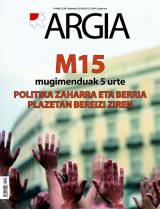

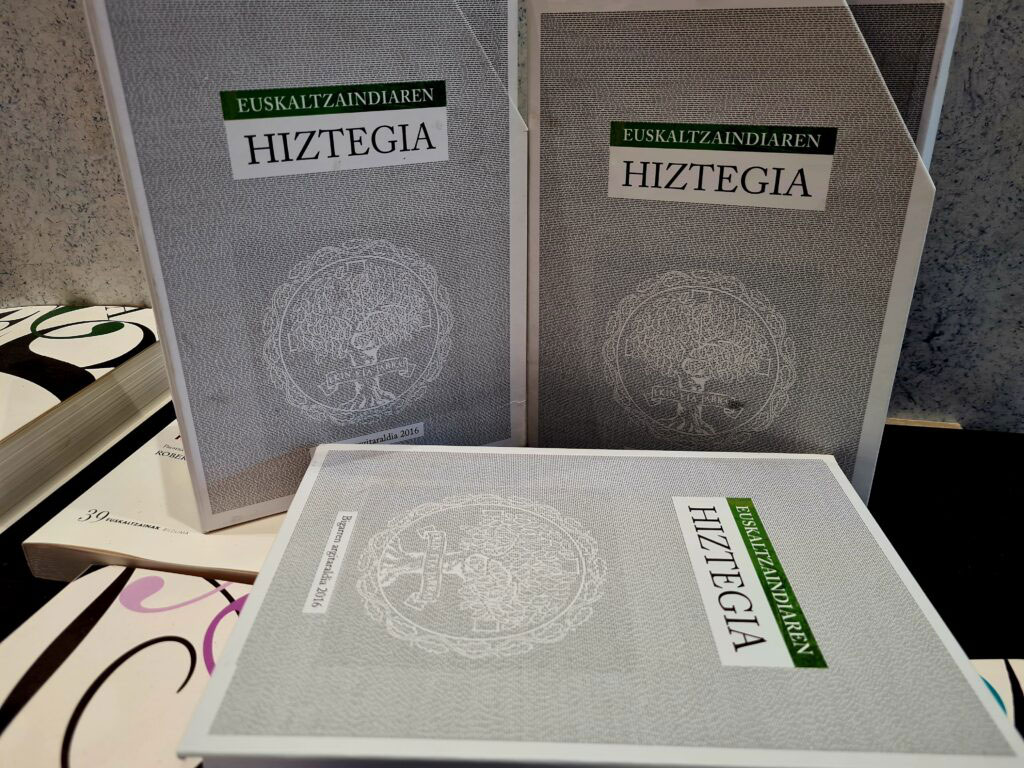
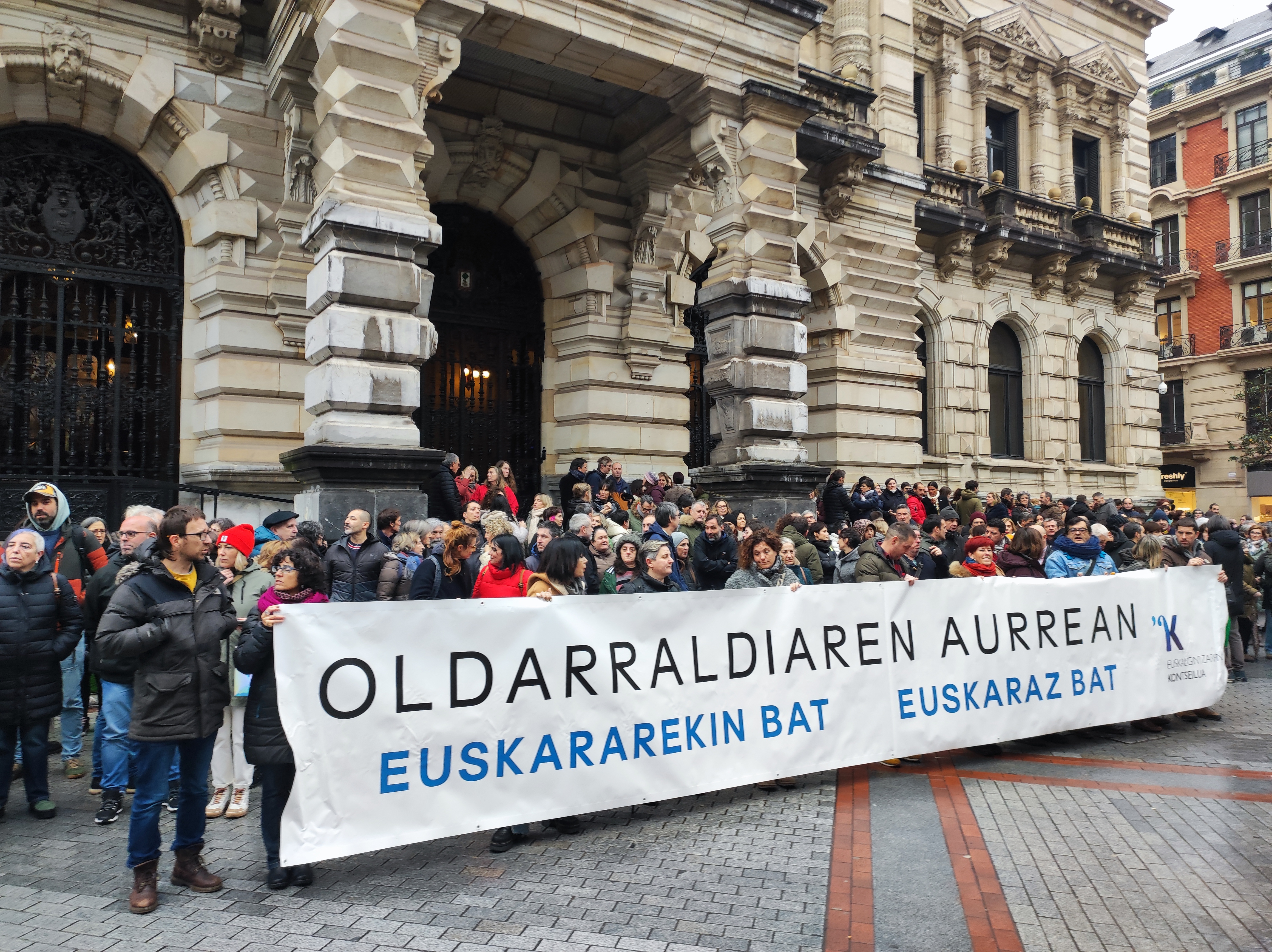
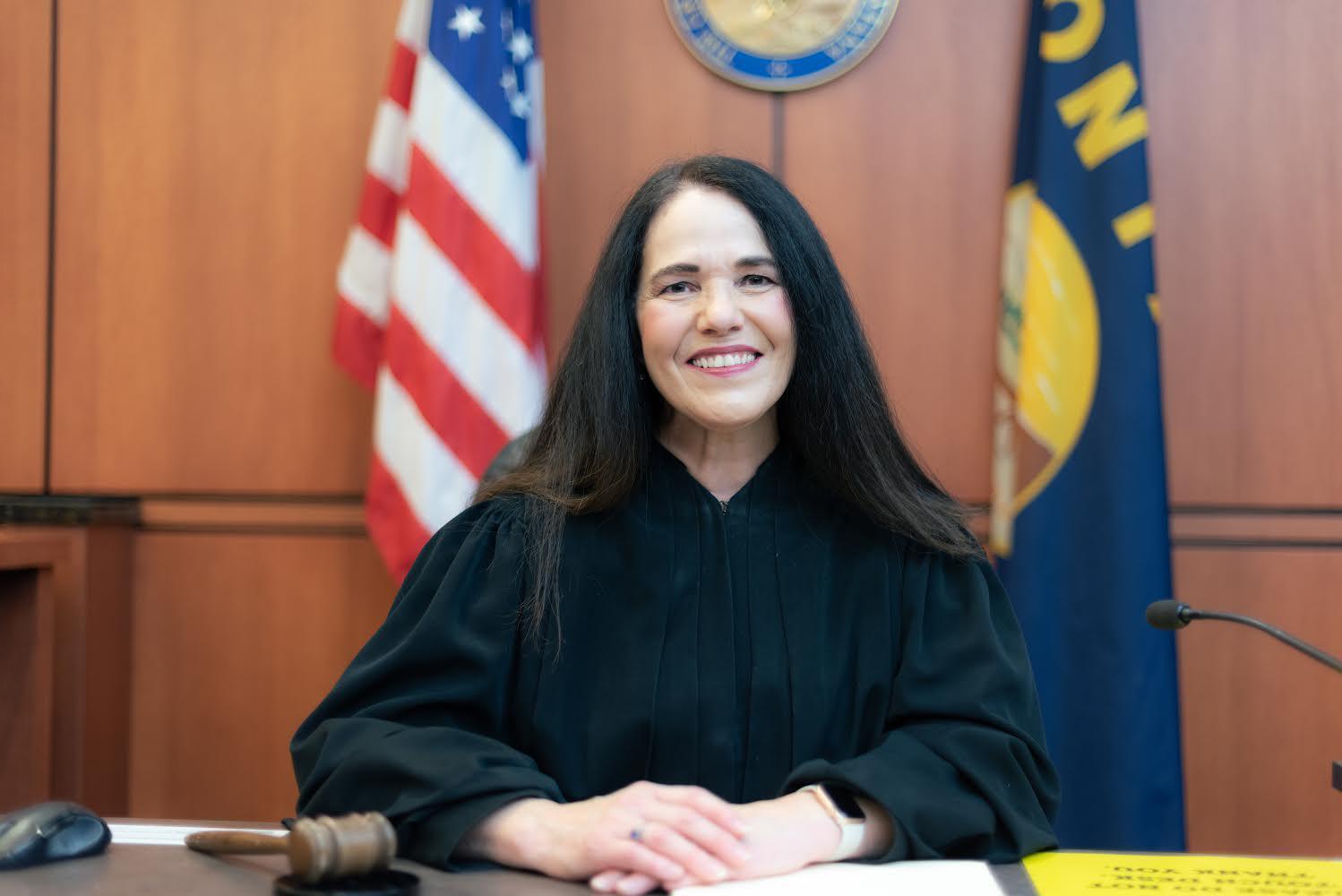
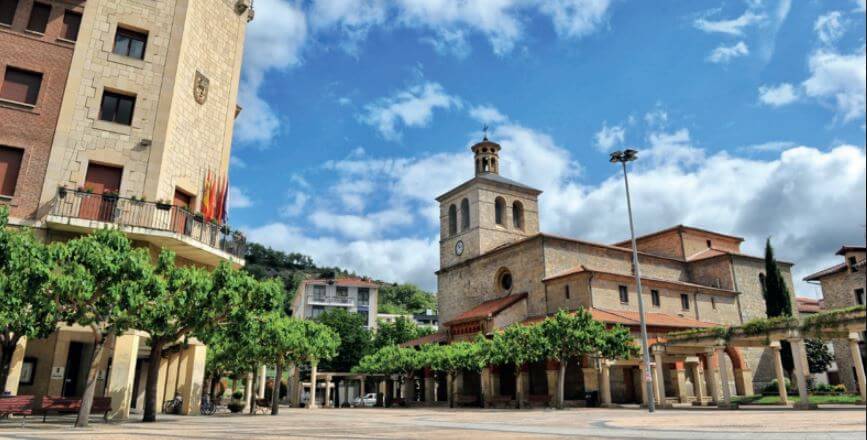
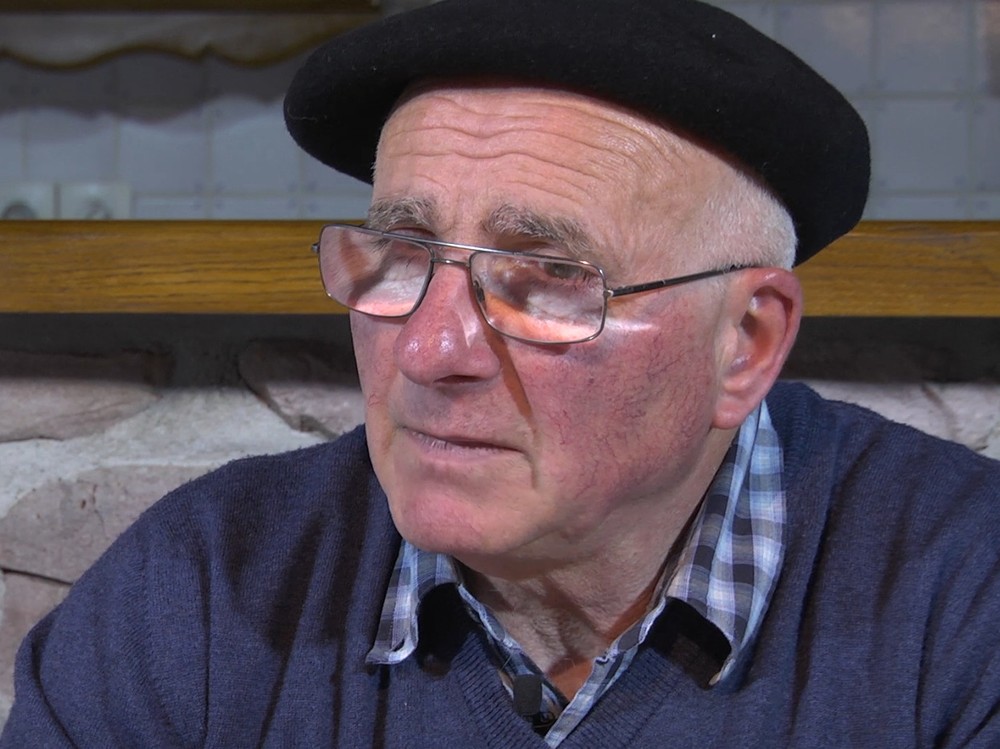
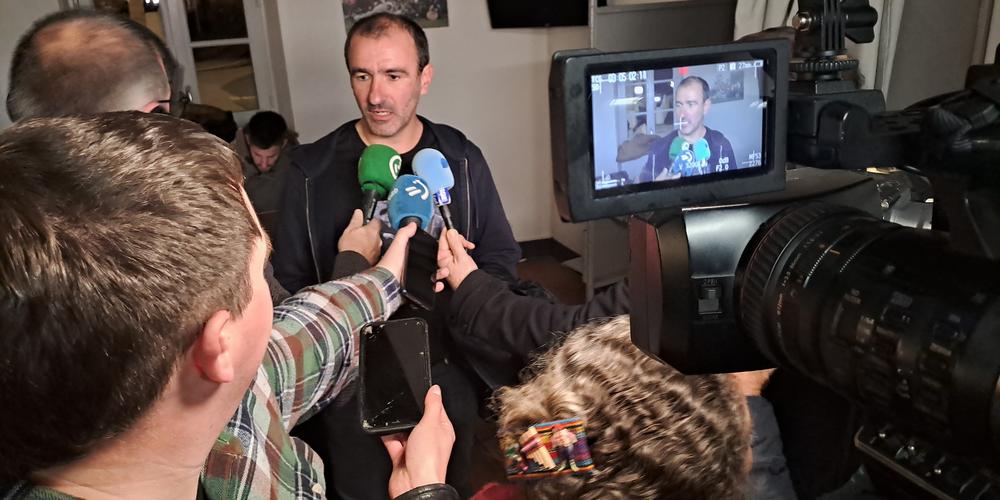
.jpg)
